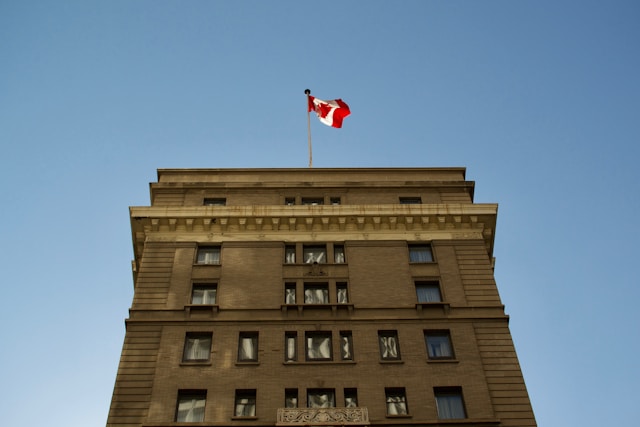As short-term and seasonal rentals continue to grow in popularity across Ontario, many landlords are turning to furnished properties, cottages, and vacation homes as revenue-generating assets. But unlike long-term rentals, seasonal and short-term leases come with unique regional restrictions, licensing requirements, and compliance obligations—especially for owners operating in multiple jurisdictions.
Whether you’re renting your property for the summer, snowbird season, or long weekends, understanding the local laws and municipal regulations is key to avoiding fines, insurance gaps, or legal disputes.
Below, we break down the most important legal considerations for seasonal rentals by Ontario region—and how Manage Your Property can help ensure you stay fully compliant while maximizing returns.
Toronto: Licensing Required for Short-Term Rentals
If you’re renting a home or condo for less than 28 days in Toronto, you must follow the City of Toronto’s short-term rental bylaw. Only your principal residence can be listed on platforms like Airbnb or Vrbo. Secondary units or investment properties do not qualify under the short-term rental program.
Key rules include:
- You must register with the city and post your registration number in all listings
- Rentals must be less than 28 consecutive days
- Hosts must collect and remit a 4% Municipal Accommodation Tax (MAT)
Planning to rent in the city short-term? Learn more on our Toronto property management page, where we help landlords stay compliant with bylaws and taxes.
Mississauga: Cautious with Condo Boards and Zoning
While Mississauga does not currently have a formal short-term rental licensing program like Toronto, many condo corporations have bylaws that explicitly prohibit seasonal or short-term leasing. You must also check local zoning regulations.
Tips for landlords:
- Get written approval from your condo board before listing
- Check the zoning designation for the property before leasing
- Ensure insurance coverage accounts for short-term tenants
We provide localized guidance through our Mississauga property management services to help property owners navigate condo regulations and preserve unit value.
Etobicoke: Governed Under Toronto Laws
Because Etobicoke is part of the City of Toronto, all seasonal and short-term rentals in Etobicoke fall under Toronto’s municipal framework.
Owners must:
- Register with the City of Toronto
- Only rent their principal residence
- Adhere to occupancy limits and reporting obligations
Our Etobicoke property management team ensures seasonal landlords comply with city-wide regulations while optimizing property use.
Peterborough: Seasonal Rental Demand, Few Restrictions (for Now)
Peterborough has seen growing demand for summer rentals, especially near the waterfront and Trent University. While the city does not yet have strict licensing requirements for short-term rentals, property owners should be proactive.
Legal considerations:
- Adhere to provincial fire code and safety standards
- Ensure insurance covers temporary tenants
- Be transparent with neighbors to avoid complaints
As Peterborough considers new regulations, working with a firm like Manage Your Property can help you stay ahead of changes.
Durham Region: Varies by Municipality
Durham includes Ajax, Pickering, Oshawa, Whitby, and other communities, each with separate rules and enforcement mechanisms. Some towns require short-term rental registration, while others focus on complaints or zoning enforcement.
Examples:
- Pickering allows seasonal rentals with certain zoning conditions
- Oshawa does not currently have licensing, but this may change
- Condo boards may have their own prohibitions
If you’re investing or managing seasonally in Durham, our Durham property management services will help you align with each local municipality’s rules.
Kawarthas: Cottage Country, With Community Oversight
Seasonal rentals in the Kawarthas—especially lakeside homes and cottages—are in high demand, but so are community concerns over noise, garbage, and overcrowding. Some townships are introducing short-term rental licensing, and many require septic and fire inspections.
What to watch for:
- Seasonal rental bylaws (e.g., in Trent Lakes, North Kawartha, Selwyn)
- Community complaint tracking systems
- Parking and occupancy limits
Our Kawarthas property management services are tailored to handle off-season maintenance, turnover scheduling, and licensing updates for cottage owners.
Markham: Tight Zoning Enforcement
Markham does not currently allow short-term rentals under 30 days unless they meet strict criteria, which typically excludes most investment properties. Zoning enforcement has increased as more residents raise concerns about unregulated listings.
If you own in Markham:
- Avoid unlicensed short-term listings on Airbnb or Vrbo
- Consider month-to-month leasing with proper lease documentation
- Ensure all tenants are properly screened and documented
Our Markham rental management team helps landlords navigate zoning limits while keeping units income-generating.
Newmarket: No Official Licensing—Yet
Currently, Newmarket doesn’t require a short-term rental license, but regulatory changes are being considered. As seasonal demand increases during festivals and holidays, the city is evaluating its approach.
Best practices for now:
- Keep occupancy within fire code limits
- Ensure short-term tenants sign rental agreements
- Minimize disruptions and document complaints (if any)
As Newmarket evolves, our Newmarket property management services provide flexible seasonal leasing and compliance support.
Final Thoughts: Seasonal Rentals Are Profitable—but Regulated
Across Ontario, seasonal rentals can be lucrative—especially in vacation zones and urban hubs. But increasingly, cities are regulating how, where, and when short-term or seasonal rentals can occur. Without proper registration, insurance, or zoning compliance, landlords risk fines, shutdowns, and tenant disputes.
At Manage Your Property, we offer full-service seasonal and long-term rental management—including listing compliance, maintenance, turnover, and reporting—across Ontario’s most in-demand markets.
Ready to optimize your seasonal rental while staying 100% compliant? Contact us today to manage your investment with confidence.





